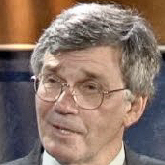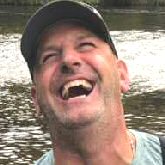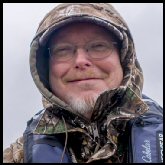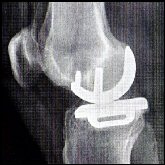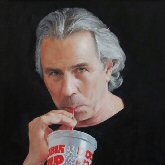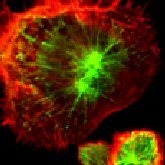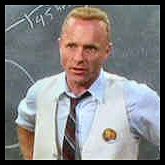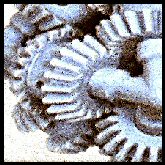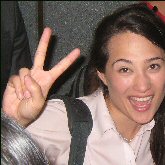You lose him. Jack Heyden was your father, your brother, maybe your son. A deep, intimate relationship. You know his profession—not the details, just what he did for a living. Normal so far. Then things start to turn.
His business colleagues invite the family here, and you all come, nerves raw from the shock that death brings. You arrive early, numb from the flurry of duties, people, and rituals that clutter such times and obediently take your seats in front, gazing about the room.
You have no idea what to expect.
A Place for Ideas
One thing’s certain—this doesn’t look like a place of business. The walls burst out with a massive and eclectic assortment of memorabilia. It’s visually overwhelming and you need just one place to anchor for the first time in days.
Perhaps you select a photograph, a poster, a toy on on a shelf, and focus on that. It makes you think. You wonder why Jack always spent his Saturday mornings here when the family wanted him at home.

The Flintmobile
The atmosphere is the genius of Joe Levy, one of Chicago’s prolific entrepreneurs and philanthropists, who started this group about 60 years ago. The assortment of unique items stretches from Joe’s early days—before they started naming streets and buildings after him. Business people meet in this hodgepodge every week, air opinions, ideas, and stimulate thought, and much of the collection speaks directly about luminaries in this group.

Joe Levy
Before you fully collect yourself, over 30 professionals take seats facing you. This is the Levy Group, that boasts some of the most brilliant business thinkers in Chicago. Jack Heyden was their leader. Today, they’re here for Jack and for you. Unusual, right?
QUESTION: Is the way you conduct business meaningful to those left behind?
Who is Jack?
The moderator calls the meeting to order: “We lost a friend this week. Jack led this group for 20 years.” Many in the group sigh and nod and he turns to the family. “And maybe you didn’t know what’s special about this room that kept him coming back.”
The moderator singles out Jack’s son. “Why don’t you introduce the family? And then we’ll have Jack’s Saturday morning family introduce him to you.”
The Son
Your dad invited you to these meetings, so you’re the one member of the family with an understanding of what this means. Everyone in the room is with you in spirit as you halt for a painful moment, then begin to talk: “It’s easier to speak at a funeral than in front of you guys,” you say, choking back emotions. “He loved this so much.”
Then you indicate your family: “I’m looking forward to hearing afterwards what they thought this was really going to look like.” Everybody quietly laughs.
“Normally you guys start with introductions and an elevator pitch. Dad would always say, ‘I’m Jack Heyden and I help leaders win,’ and today, my best elevator pitch is—‘I’m just the son of Jack Heyden.’”
The Group
After the applause, the moderator calls on individuals via some hidden, efficient system, and they testify about Jack one by one:
- “When I first came to this group, I looked around at these eclectic surroundings and said to myself, ‘Okay, there’s gonna be a lotta character in this group.’ One thing was magnetic—one of the big differentiators—it was Jack. He’s very to-the-point and structured and it was always very productively efficient, always in a good vein and in a good way. How impressed I was! That made me want to come back and give back. As you grow older there are two sets of people you meet at a very high level. Those that you admire for whatever reason, be it charm, achievement, financial success. But there are very few people you want to model. There’s something about this person—what they do, how they interact—I want to deconstruct it and figure out how I can absorb it into what I do, how I interact with people. Jack is one of the people about whom I’ve said, ‘I want to model this guy.’”
- “In life, you meet a lot of people. When they say things, you think, ‘…Uh huh.’ But when Jack said it you really understood what he meant, then he showed you how to do it.”
- “He always talked about the ‘Say/Do Ratio.’ Successful people have an incredible Say-Do Ratio. Don’t say things to your family, to your co-workers and clients and not follow through. If you say something, do it.”
- “Whoever he was with, he gave 100% of his attention.”
- “The first thing when I came to any meeting, he’d give me this big giant smile, whether it was last week or six months since I’d been here.”
- “At an event, Jack asked me to introduce some of my friends because he wasn’t sure he’d know anyone. I figured, okay, he’s done so much for me and he’s bound to know someone. Pretty soon there’s a gathering at our table. It appears that Jack was the hub of a wheel—and some of the spokes didn’t know each other. So Jack spent the evening introducing me to all the spokes I didn’t know.”
- “When I started coming, it was a low time in my business life. I’d say, ‘I’m a member of the CIO—‘Everybody I see I owe.’ And Jack was so welcoming. ‘I’m so happy to meet you. I’m so glad you’re here,’ and I’m looking over my shoulder like, ‘You’re talking to me?’”
- “I grew up with giants in my industry. Since I’ve left, I’ve met a few people I consider giants. Jack was that leader. We all looked up to him.”
- “Like all first companies, mine was a struggle. Jack said he’d come to my office and talk. He wound up interviewing all seven of my employees. He came back with this big document that showed, here’s the guy that does this and the gal that does that and here’s what needs to happen. He was spot-on. When he came to me for help on technology, we had that going. So we had a relationship.”
- “When he put on his mentor’s hat, he’d say, ‘You got 10 minutes. Tell me why I should spend more time with you.’ He was trying to draw you out.”
- “When I joined this group, I had a lot of patents. I mentioned to Jack that the odds of a little guy commercializing a patent are about 3%. Jack said, ‘Don’t think about the obstacles.’”
- “I looked very hard for a word that encompasses what Jack was. The word I found is “Olympian.’ Jack was above the crowd. A wonderful thinker. Very important to me as I consulted with him many times. I can’t say enough about him. To me, he’s a towering presence.”
- “I asked him to have breakfast and talk over a problem I had. His advice was really outside the box. I had not realized the wealth of experience he had—what you had to do next and how to deal with that—and I said, “Wow, this is good, Jack!”
- “I’m very fortunate in my life to have great mentors at a very high level. Jack was of that calibre.”
- “In a few days it will be the second anniversary of my wife’s sudden death. Jack sat in the back yard with me talking with me about the tree house, his problem with the landscapers, and he took me to a level of understanding that life goes on.”
- “A man who was very giving. He helped people understand what they were and what they could do. Gregarious people can give cheer, but they don’t have that depth. And it’s that depth of character we all really embrace.”
- “I had a great affection for Jack. I feel honored to be here.”
- “I wanna make a difference. I think that’s what Jack looked forward to every day.”
The moderator stands to close the meeting. “We’re hearing stories about how giving and how public and how embracing he was. One of the things I found remarkable about Jack—he would not let us know how sick he really was.
It wasn’t an issue. He was gonna be here. He was here 4 weeks ago—strong, present. He was a very sick man at this particular point but he did not let it be known. Being for the other person is very, very powerful. And that’s what this group’s all about—giving and sharing.”
QUESTION: Is the way you treat people meaningful to those left behind?
■
Graphics courtesy Joe Levy, Nathan Mandell, and the Jack Heyden family.
Chicago Venture Magazine is a publication of Nathaniel Press www.ChicagoVentureMagazine.com Comments and re-posts in full or in part are welcomed and encouraged if accompanied by attribution and a web link. This is not investment advice. We do not guarantee accuracy. It’s not our fault if you lose money.
.Copyright © 2016 John Jonelis – All Rights Reserved
.
.

